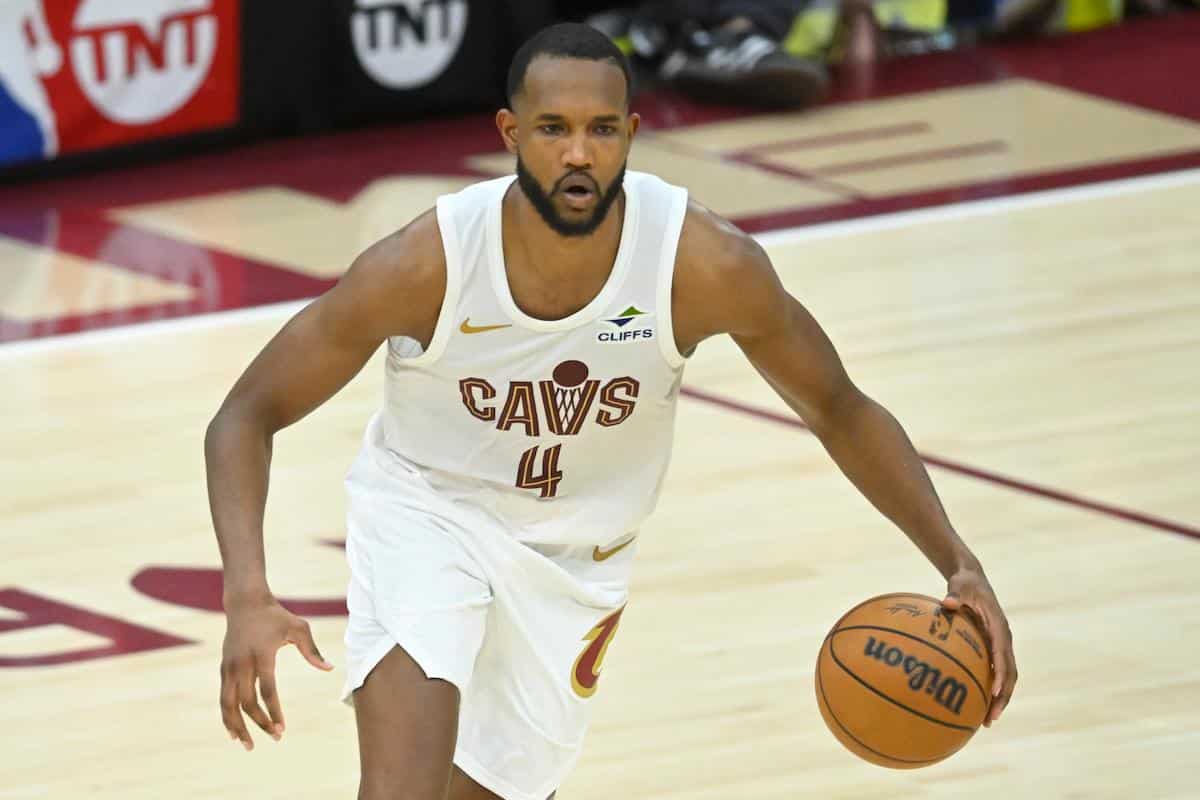Evan Fournier was an interesting Celtic.
Not a memorable one. Not a successful one.
Fournier’s arrival came during the height of Boston instability during the Jaylen Brown and Jayson Tatum era. He arrived to help fill the shooting and scoring deficit left by Gordon Hayward’s departure the previous summer. It became Danny Ainge’s last significant move as President of Basketball Operations.
It also makes me think back to a darker time in team history, to probably my worst take covering the team — that Boston had to retain him in free agency.
Three years later, the Celtics are celebrating their 2024 championship while Fournier has signed with Olympiacos after twelve seasons in the NBA. Brad Stevens, who ascended to president after Ainge left, did not re-sign Fournier in unrestricted free agency. The Knicks did for four-years, $73 million — a contract that went sideways almost immediately and ended with Fournier benched in the third season before trading him to Detroit as part of the Bojan Bogdanović deal.
While Stevens went on to make defining moves, letting Fournier go set the stage for all of them alongside swapping Kemba Walker for Al Horford that summer. It also proved for Stevens, as many talks did with Ainge, that the best moves are the ones you don’t make. The Celtics used the rest of Hayward’s trade exception to absorb Josh Richardson’s contract, and while the team’s instability and shooting woes continued into 2021-22, Stevens had the salaries to strike one year after the Fournier trade and acquire Derrick White — the defensive playmaker who soon developed a quality three-pointer.
Ainge gave up far less for Fournier — a pair of second-rounders. With Boston flailing badly needing reinforcements following the Hayward loss and inactivity at the deadline costing the Celtics in the Orlando bubble, trading for Fournier allowed Boston to say it did something. Aaron Gordon and Nikola Vučević’s names floated as more expensive, flashier upgrades that the team didn’t earn and Ainge rarely stomached.
Fournier’s arrival also came with luxury tax shuffling that sent Daniel Theis to Chicago. The Celtics appeared to know they weren’t competing in 2021, but with Brown and Tatum hampered so much by poor spacing around them, Fournier seemed like a good value veteran addition as a 38.8% three point shooter in Orlando on high volume. Defensive issues and inconsistency lurked as risks, as did his impending free agency.
Instead, COVID-19 doomed Fournier’s Boston stint immediately. He missed two games upon arrival, then played four that included an 0-for-10 debut from the field and a 7-for-11 explosion from deep four days later. Then, he went down with another positive test and missed nine games.
That left 12 games for him to ramp-up for the playoffs, which Boston had to reach through the Play-In Tournament without Brown, who underwent season-ending wrist surgery during that stretch. Fournier started 0-for-10 upon returning, then closed the season 56.4% from three over eight games, including another 7-for-11 night. The Celtics didn’t have any shooting close to that prior to Sam Hauser’s arrival, Grant Williams’ 2022 breakout and Horford’s return.
Fournier averaged 15.4 points per game and shot 43.3% from deep against Brooklyn in the playoffs and was a frequent target for Kyrie Irving, Kevin Durant and James Harden on defense. He fouled four times per game in the series and closed 3-for-14 on threes.
The Celtics saw enough.
It made for an intriguing debate entering that summer. Fournier’s price didn’t seem ludicrous: it included a fourth year team option, especially as shooting became the top commodity league-wide. The team still hadn’t replaced Hayward and lost another top scorer in Walker. Romeo Langford and Aaron Nesmith’s development stagnated into the playoffs. As questions about Brown and Tatum’s fit together arose, their lack of help became glaring in 2021. Fournier would become the latest offensive threat alongside them to walk out the door for nothing.
Yet that’s exactly what allowed the Celtics to reach the NBA Finals less than one year later.
It followed an extended period of doubt capped by Fournier’s 41-point revenge game with the Knicks that dropped Boston to 18-21 after a 25-point collapse. The Celtics needed to address the roster around them and empower their playmaking by acquiring players who could convert shots. Richardson and Dennis Schröder couldn’t do so consistently enough, nor could the team’s young players.
Enter White, Malcolm Brogdon and eventually, Jrue Holiday and Kristaps Porziņģis.
Fournier provided needed shooting. Stevens and the Celtics eventually realized you also need defense and preferably playmaking. Every player provided at least two of the three on the team’s way to the 2024 title. And it cost a lot. Many first round draft picks went out the door. The salary commitments into the future look scary. No team is better positioned to contend over the next two seasons.
And it all started with Evan Fournier.





